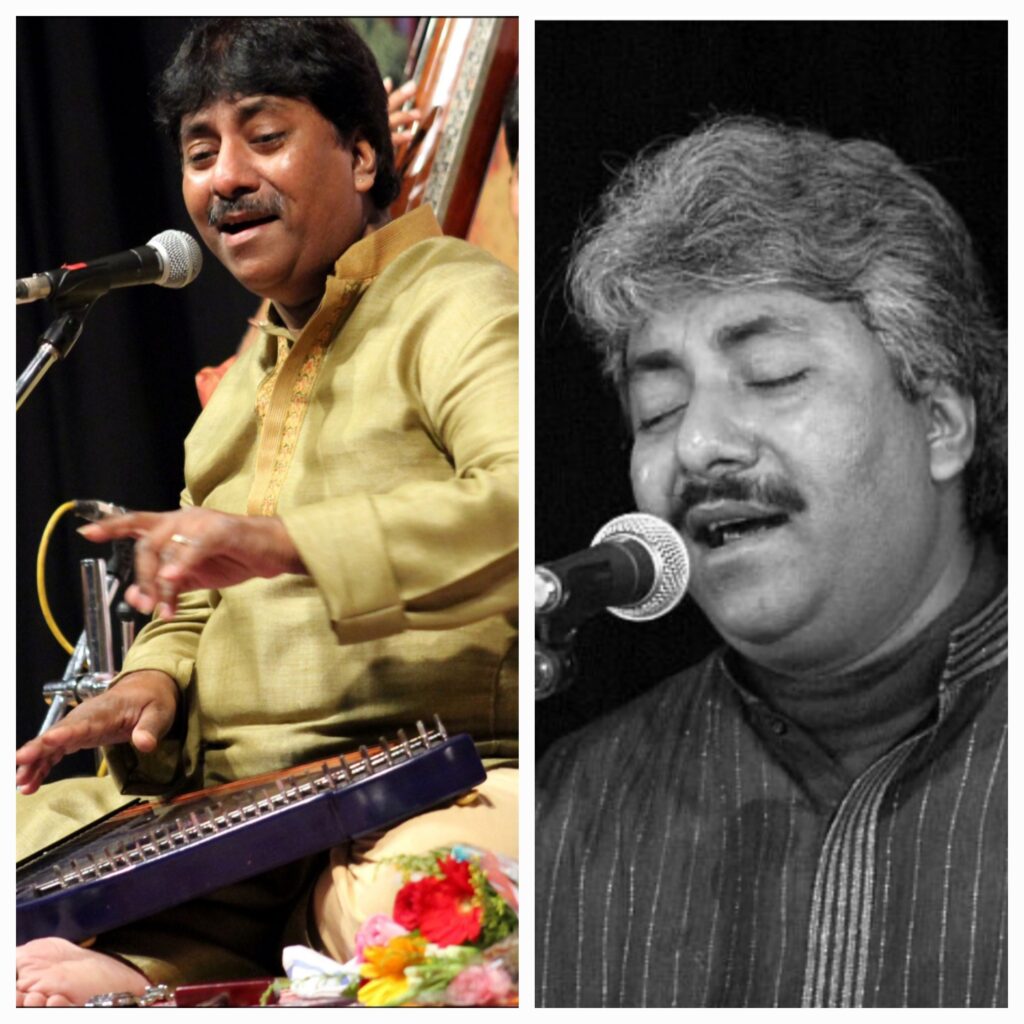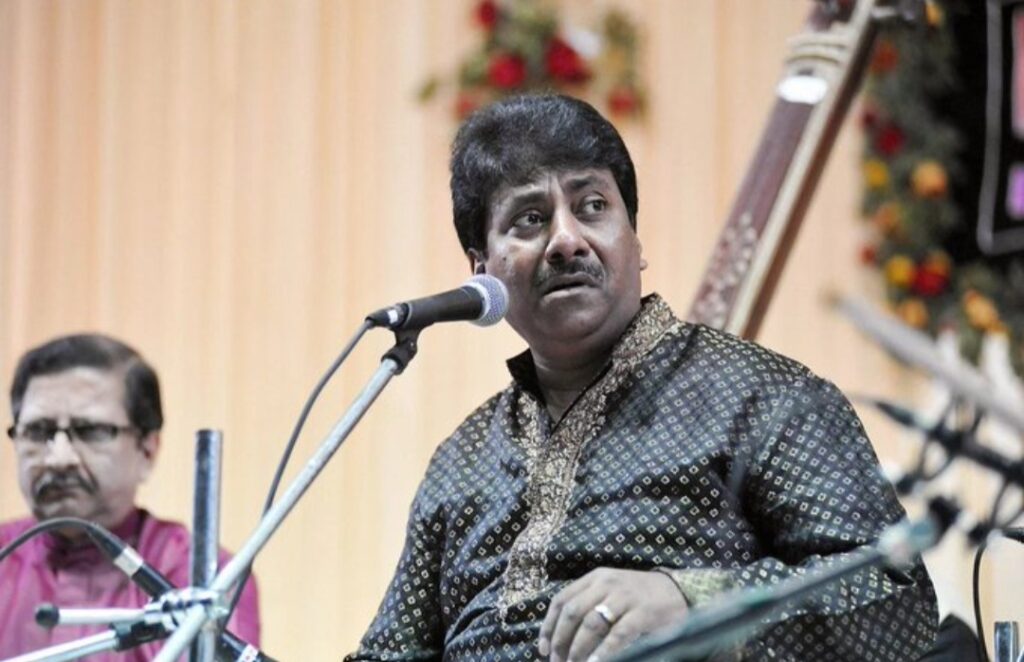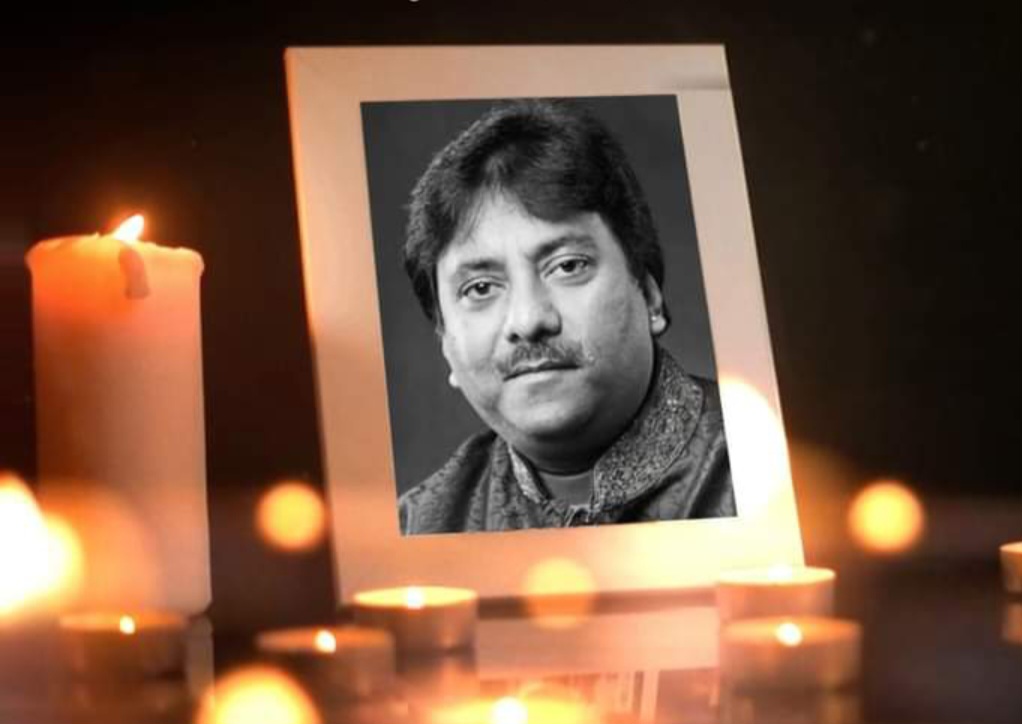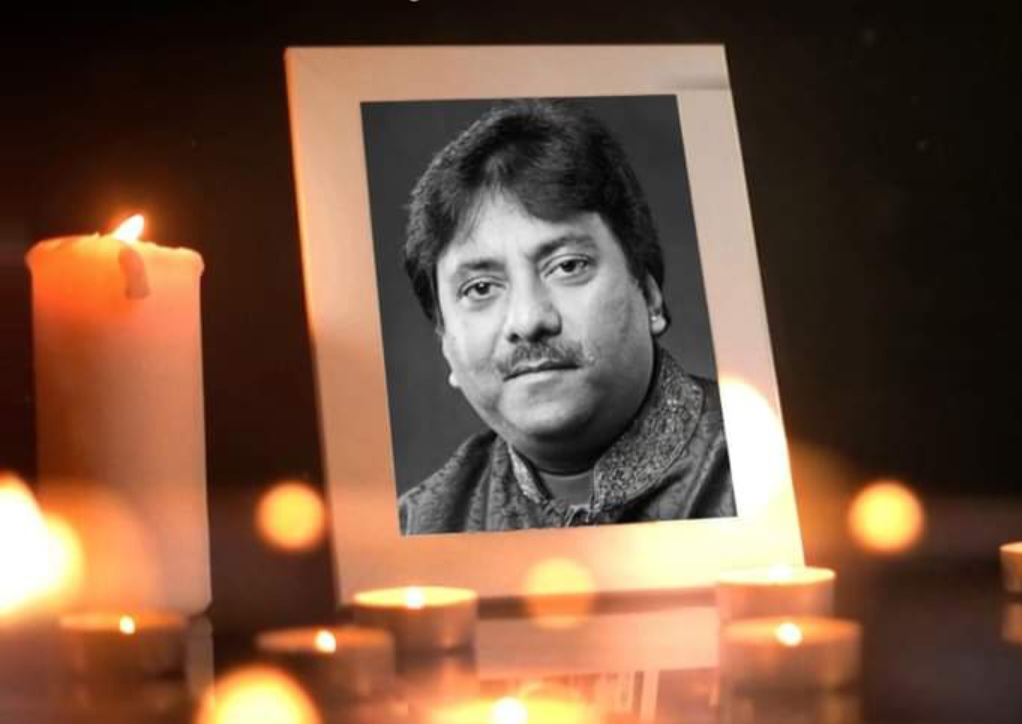Rashid Khan, a great maestro whose deep voice touched listeners of all ages, is mourned by the music industry. It is important to consider the remarkable journey that shaped this musical genius’s legacy as we honor him today.

Rashid Khan was an Indian classical musician in the Hindustani tradition who lived from 1 July 1968 until 9 January 2024. He was a member of the Rampur-Sahaswan gharana and the great-grandson of Inayat Hussain Khan, the founder of the gharana. To Soma Khan, he was married.Pandit Bhimsen Joshi stated that Rashid Khan was the “assurance for the future of Indian vocal music” in a story that has been told multiple times. In 2006, he received the Sangeet Natak Akademi Award in addition to the Padma Shri. In the sphere of art, the Indian government granted him the Padma Bhushan in 2022, which is the country’s third highest civilian honor.
The Early Years: Nurturing a Gifted Voice
He was not very interested in music as a child. One of the first people to recognize his musical ability was his uncle, Ghulam Mustafa Khan, who also gave him some training in Mumbai. On the other hand, Nissar Hussain Khan provided him with his primary training, first in his Badayun residence. Nissar Hussain Khan was a severe disciplinarian who made Rashid practice a single note on the scale for hours on end and insisted on voice training (Swar Sadhana) starting at four in the morning. It would take an entire day to practice one note. Even though Rashid hated these classes as a child, his simple grasp of taan and layakaari now is evidence of his disciplined training.Rashid did not start to genuinely appreciate music instruction until he was eighteen years old.
Breaking Boundaries: Fusion of Tradition and Innovation
At the age of eleven, Rashid Khan gave his debut performance. The following year, in 1978, he took part in an ITC concert in Delhi. At the age of fourteen, Rashid Khan also enrolled in the ITC Sangeet Research Academy (SRA), Calcutta, in April 1980, following the relocation of Nissar Hussain Khan. He was officially recognized as a musician at the academy by 1994.Rashid Khan showed a great ability to combine traditional classical components with modern genres as his musical journey progressed. By experimenting with fusion genres, he expanded his fan base and elevated classical music to a level of appreciation that is widely shared.
Soulful Expressions: Rashid Khan’s Unique Style
His instrument was his voice, and every performance was an exquisite work of soul-stirring art. His ability to express deep emotions via singing was unmatched, whether he was singing lyrical ghazals or delving into the complexities of Hindustani classical music. His performances were excursions into the depths of human feeling rather than merely auditory experiences.

His Notable Works
- Classical Wonders of India (2015)
- Krishna – Ustad Rashid Khan (2013)
- Baithaki Rabi – Ustad Rashid Khan (2012)
- Poore Se Zara Sa Kam Hai
- Nirgun (2010)
- Kabir (2009)
- Shabad Kirtan Gurbani
- Hey Bhagwan – Ustad Rashid Khan
- Master Pieces Ustad Rashid Khan
- The Song of Shiva
- Morning Mantra (2003)
- Morning Mantra (2003)
- Selection – Raga – Megh and Hansadhwani (2002)
- Voice of India (2002)
- Naina Piya Se
- Live in Concert: Moreton Centre (2000)
- A Maestro in the Making (2000)
- The Genius of Rashid Khan (2000)
- The Song of Shiva (2000)
- In London (2000)
- Saajan More Ghar Aao (Live) (1998)
- Selection – Kaushi Kanada – Charukeshi – Barwan (1996)
- Khyal (1996)
- Shyam Kalyan – Ustad Rashid Khan (1996)
- Rashid Khan Live In Concert (1995)
- Rashid Khan – Ustad Rashid Khan (1995)
- A Tribute to a Living Legend (1995)
- Raga Yaman / Raga Kirwani (1994)
- Rashid Khan Live In Concert (1993)
- Raga Bageshri / Desh (1991)
In conclusion, the Musical Odyssey of Rashid Khan endures.
After a protracted fight with cancer, well-known vocalist Rashid Khan passed away on January 9, 2024, in a private hospital in Kolkata. He was given a prostate cancer diagnosis, and while treatment helped him at first, on December 23 his health unexpectedly began to worsen. He was admitted to the hospital, given oxygen support, and died at the age of 55 from the sickness.

In conclusion, the Musical Odyssey of Rashid Khan endures.As we commemorate Rashid Khan’s legacy, we are acknowledging not only the memory of a departed soul but also the lasting impact he had on the music industry. His life story, from his early years of intense classical instruction to his rise to international fame, is proof of the transformational potential of music.
